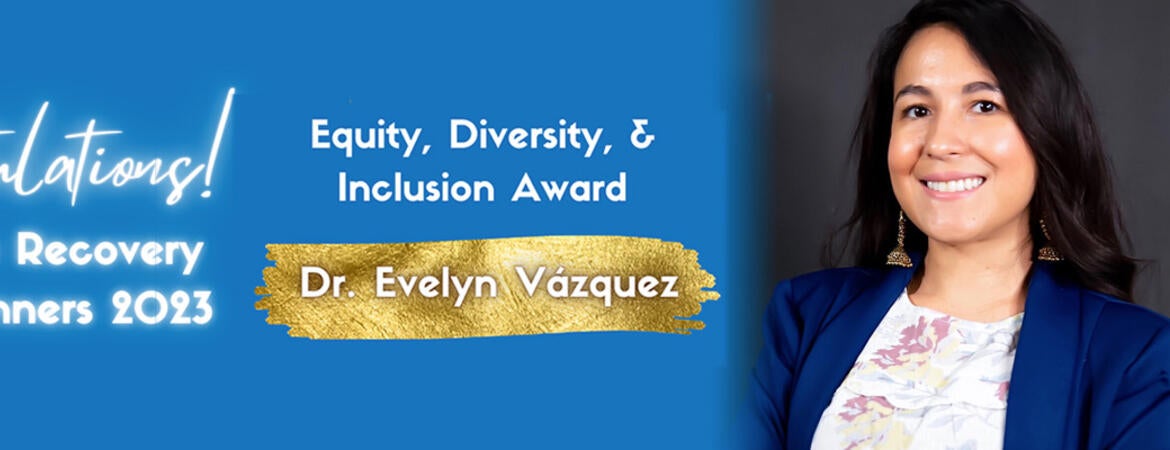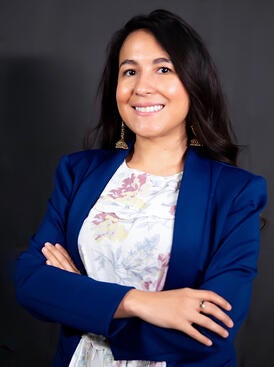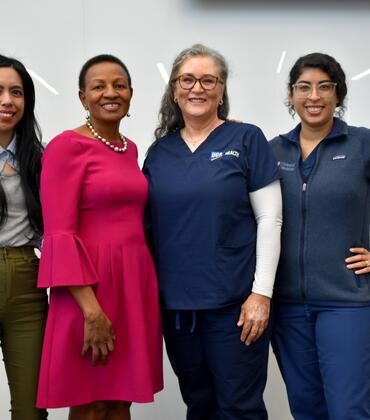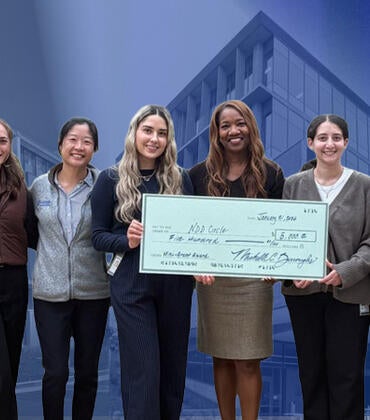

Evelyn Vázquez, PhD, of the Department of Social Medicine, Population, and Public Health (SMPPH) has been named recipient of the Equity, Diversity, and Inclusion Award from the Association of Recovery in Higher Education (ARHE). She will receive the award at the annual conference at The Ohio State University from June 25-28.
The award honors an individual who has aided in the advancement of equity, inclusion, and social justice in the field of collegiate recovery for Black, Indigenous, and people of color (BIPOC) and/or LGBTQ+ students or has displayed a strong commitment to these populations in the wider recovery communities.
“Over the years, most of my research and service efforts have focused on amplifying the voices of historically marginalized students,” Vázquez said. “Students in recovery are often invisible and marginalized in higher education settings—few universities have collegiate recovery programs or peer support groups. In our “Voicing Student Recovery” manuscript we advocate for the need to embrace diversity in collegiate recovery programs. This diversity includes awareness about the diverse forms of paths to recovery among college students and the promotion of culturally sensitive approaches that address the unique needs of historically marginalized students in recovery.”
“This award was established to honor an individual who has advanced equity, inclusion, and social justice in the field of collegiate recovery,” said Dr. Mark Wolfson. “This is exactly what Dr. Vázquez done in her scholarship, such as her groundbreaking article on the need to address racial and ethnic diversity in college and university recovery programs.”
Vázquez was nominated by Chelsea Shore, a graduate coordinator in the Collegiate Recovery Program at Florida State University.
"I would like to nominate Dr. Evelyn Vázquez From UC Riverside for the DEI award," Shore wrote in the nomination. "She recently published and article on diversifying recovery to be more culturally centered, especially for BIPOC and LGBTQA+ communities. She’s also working on a few grant applications to target these populations and understand their needs. She is a minority herself and I think is doing great work in research and on policy that should be recognized."
"Research informs policy which impacts the level of support Collegiate Recovery Programs get from their state appropriations or institutions. As Dr. Vazquez advocates in her recent article, most of the research currently available on CRPs is informed from white, male, 12-step programs (total abstinence), and researchers among the same paradigms. This doesn’t take into account federal or state loosening laws around substances (i.e., legalizing marijuana or mushrooms). It is crucial for current research, and researchers, to be criticized and reevaluated among different student populations for CRPs to be truly inclusive of all students. Research moves slowly but her publication is a critical step in ensuring these programs are diverse and equitable to match the evolving landscape of higher education institutions across America," she added in the extended nomination.



